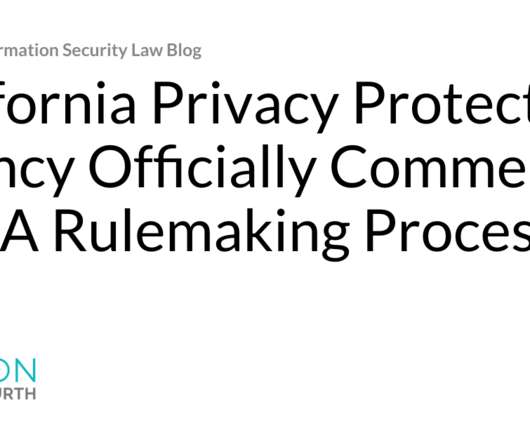California Privacy Law Overhaul – Proposition 24 Passes
Data Matters
NOVEMBER 4, 2020
Importantly, the CPRA imposes additional obligations on and considerations for businesses subject to the CCPA, including: Providing consumers with the right to prevent businesses from sharing their personal information with third parties for behavioral advertising or advertising based on a consumer’s precise geolocation.
















Let's personalize your content